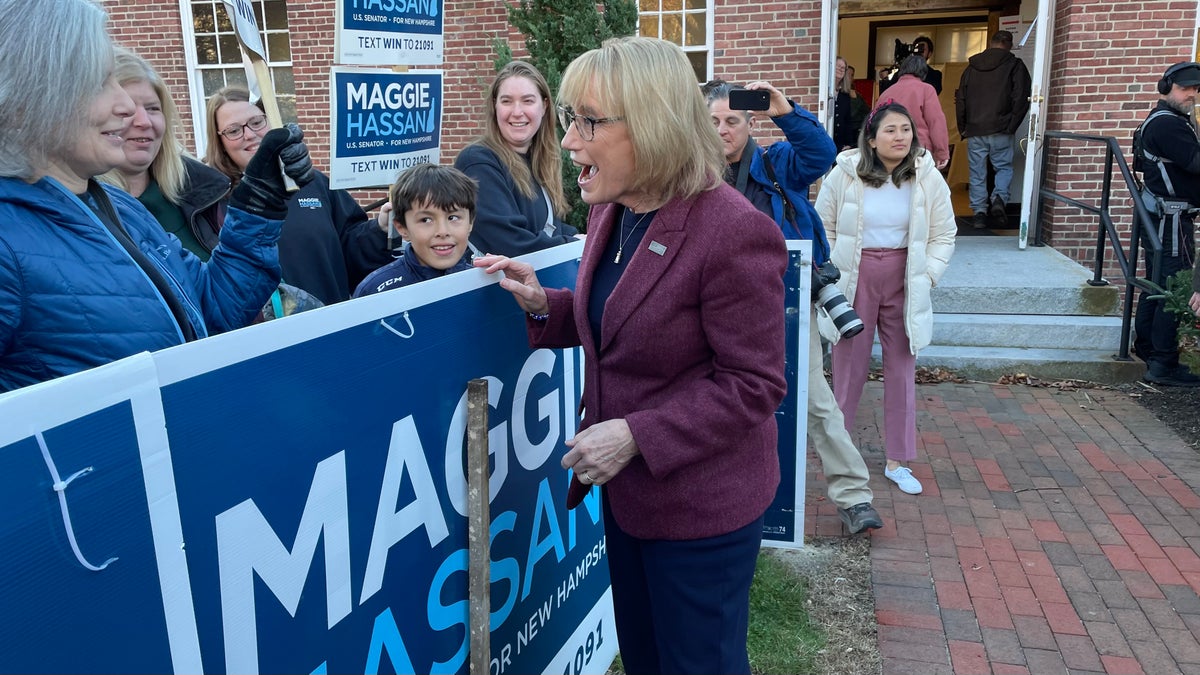Inflation falls slightly, but remains key issue after midterms
King’s College professor and Fox News contributor Brian Brenberg says prices ‘may’ have maxed out, but ‘we are nowhere near the finish line’ with inflation.
The midterm results are in, and the stage is set for a closely divided Congress to convene in the new year. Leading up to Election Day, pundits predicted a red wave. Instead, Republicans narrowly avoided a historic midterm loss, and they ultimately came up short in their effort to retake the Senate. Now, political experts are wondering – what happened?
If you want an answer, just take a look at how America’s older electorate voted. In House races across the country, voters over the age of 45 turned out to offer overwhelming support for candidates who ran on inflation and issues that affect everyday Americans. However, Republicans who campaigned on culture wars lost ground with older voters. This year, older Americans made it clear that a successful campaign platform is built on kitchen-table issues — and Republicans retooling the party message for the next election cycle would be wise to take note.
This year’s midterm elections shattered turnout records, numbers-driven by highly motivated older voters eager to make their voices heard. Americans over the age of 45 represented the vast majority of voters, making up two-thirds of all ballots cast in the midterms, and voters over the age of 50 made up 61% of the electorate in U.S. House races rated as "lean" or "toss-up" — some of the most tightly contested elections in the country.
SEE IT: CHRISTMAS TREES WILL NEEDLE BUYERS THIS SEASON WITH PRICES EXPECTED TO RISE
According to exit polls, nearly a third of Americans across the country saw inflation as their top concern. Many of these voters were over the age of 45, and they were worried about high gas prices, record rent and grocery bills, and the skyrocketing cost of prescription drugs. However, many Republicans centered their campaigns on culture-war issues instead of focusing on the kitchen-table problems facing everyday Americans – and it made a difference at the ballot box.

Democratic Sen. Maggie Hassan greets supporters after voting in her hometown in Newfields, N.H., on Nov. 8, 2022. (Fox News )
According to recent polling that was featured in The New York Times, voters over the age of 50 in 63 key battleground districts shifted away from the GOP, and Republicans went from maintaining a 10-point advantage to staring down a three-point deficit with older voters in these closely contested races compared to surveys taken over the summer. These voters cited threats to Medicare and Social Security as key issues, and they prioritized selecting candidates with bipartisan bona fides.
CLICK HERE TO GET THE OPINION NEWSLETTER
Additionally, in crucial Senate races, voters over the age of 45 sank Republican candidates in key swing states. In Arizona, Pennsylvania, and New Hampshire, three states that allowed Democrats to maintain their slim Senate majority, Republican candidates failed to earn enough support of older voters. In all three of these states, Republican Senate candidates let kitchen table issues take a backseat, and instead of hammering home on how to cut high gas prices and unaffordable rent or offering credible solutions to tamp down on red-hot inflation, Republicans in these states ran on a platform dominated by highly partisan culture war issues.
Right now, Republicans are examining the aftermath of the 2022 midterms looking for a lesson as the party prepares to sharpen its messaging ahead of the next election cycle. But the path forward is clear — if Republicans want to earn the support of America’s older electorate, they’ll have to focus on kitchen-table issues.
CLICK HERE TO GET THE FOX NEWS APP
Now, Republicans have a chance to do just that. Despite losing ground with older voters in the midterm elections, House Republicans have the majority in Washington for the first time since 2018, and they have the opportunity to show older voters they can deliver by working across the aisle to lower the cost of prescription drugs, slash gas prices, and protect Social Security and Medicare.
This year, voters made one thing clear to Washington politicians: Clashing on culture wars isn’t the way to win elections. Instead, Americans want elected officials ready to address everyday problems and basic kitchen-table issues.


